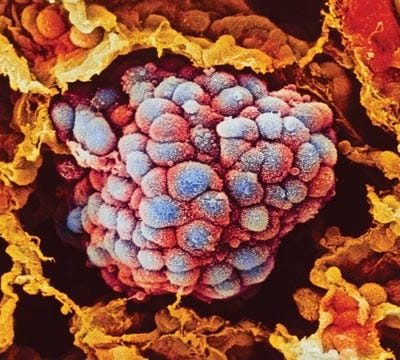In the field of synthetic biology, scientists are working on creating living systems that do not exist in nature. Recently, researchers have developed programmable cyborg cells that could potentially aid in the treatment of cancer and other diseases. The goal of synthetic biology is to produce biological systems with new properties, and the creation of these cyborg cells is a significant step towards achieving that goal.
The team of scientists, led by biomedicist Cheemeng Tan from the University of California in Davis, used artificial polymer building blocks in living bacterial cells to create the cyborg cells. The polymer blocks were then exposed to ultraviolet light, which caused them to form a hydrogel matrix. This matrix prevents the cells from reproducing while still allowing them to maintain their biological activity. Additionally, the cells become more resistant to stress factors such as hydrogen peroxide and antibiotics.
Previous approaches in synthetic biology involved either creating completely artificial cells or modifying the genetic material of existing cells. However, these methods had limitations, such as the inability to perform complex tasks or the risk of uncontrolled reproduction. The programmable cyborg cells developed by Tan’s team offer a new approach that combines the advantages of both methods while avoiding their drawbacks.
The potential applications of these cyborg cells in medicine are promising. In experiments, the cells were able to penetrate cancer cells, and further research will explore their effectiveness in treating various diseases. The development of these programmable cyborg cells represents a significant advancement in synthetic biology and could have a significant impact on the future of medicine.










